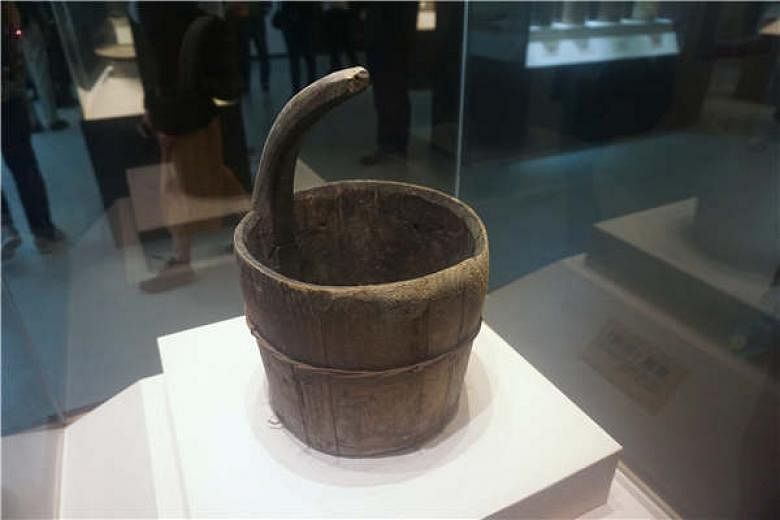XIAOGAN, HUBEI (CHINA DAILY/ASIA NEWS NETWORK) - When talking of Xiaogan city in Hubei province, most people will recall its most famous snacks, sesame chips and rice wine. Reporters participating in a large-scale cultural event on intangible cultural heritage paid a visit on Saturday (Sept 23) to the Xiaogan Museum of Sesame Chips & Rice Wine, an establishment showcasing the history and evolution of the renowned foodstuffs.
The sesame chip, a candy made of sesame, is one of the most famous snacks in Hubei province, enjoying much fame as early as the end of the Yuan Dynasty (1271 to 1368). The making of sesame chips has four steps: sesame selecting, sugaring off, sugar pulling and candy slicing.
Rice wine is also called dessert wine and is a speciality of the Han people. According to historical records, rice wine was developed in Xiaogan and originated from the Song Dynasty (960 to 1279). The making of rice wine also goes through four steps: steaming sticky rice, laying out the rice, fermentation and enclosing the wine into jars. The wine was listed as a provincial intangible cultural heritage item in 2015.
The city of Xiaogan got its name from a story of filial piety. Xiaogan in Chinese means "filial piety" and "pity". As legend goes, a man named Dong Yong sold himself to pay for his father's burial and a god took pity on him for this filial deed.






